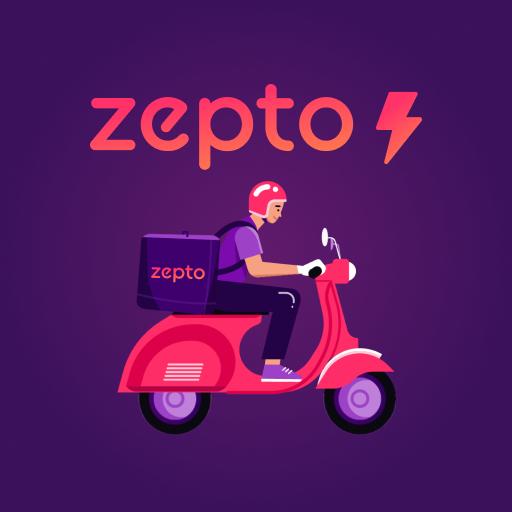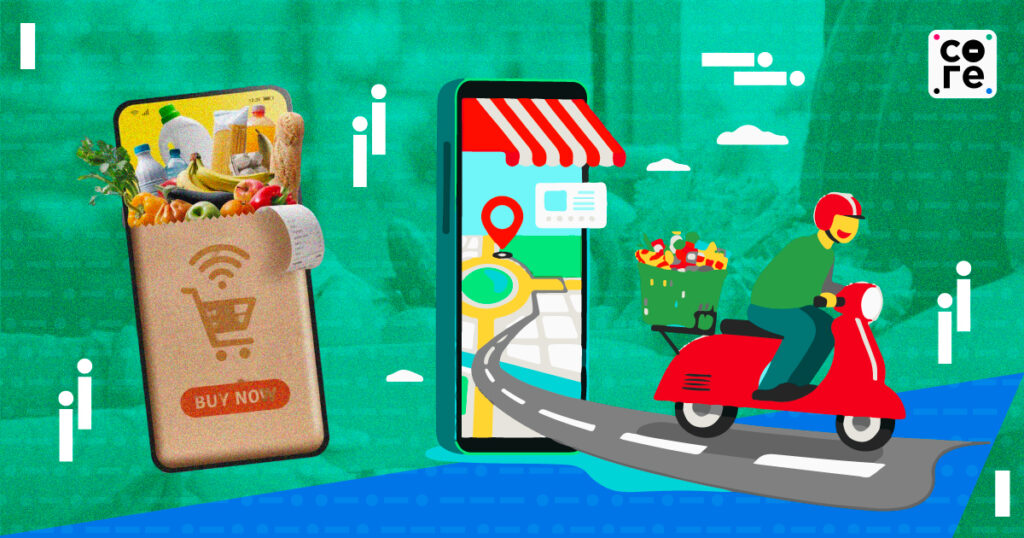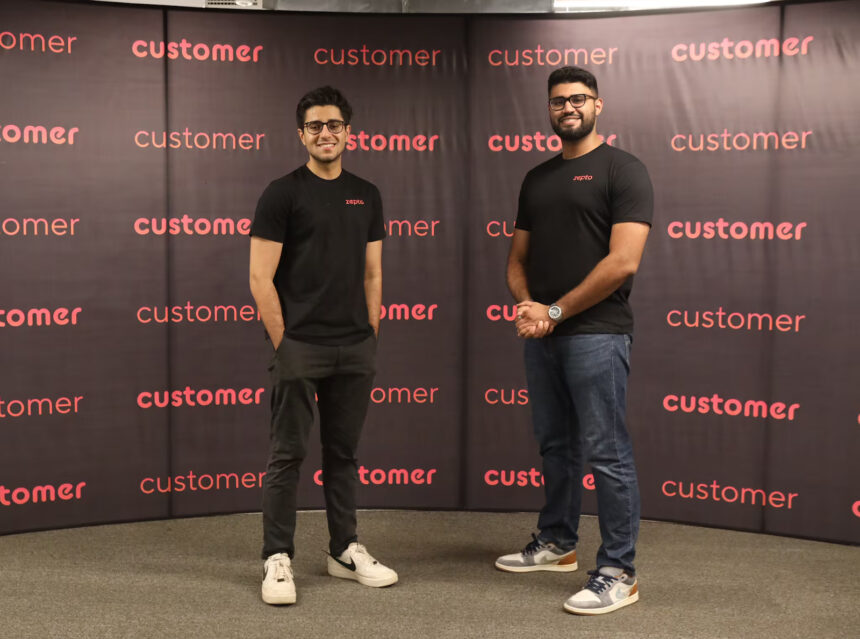At just 21 years old, Kaivalya Vohra has already carved a name for himself as one of India’s youngest billionaires. As the co-founder of Zepto, a quick commerce company revolutionizing grocery delivery, Vohra’s journey from a college dropout to a business magnate is nothing short of inspiring. Bold decisions, entrepreneurial zeal, and a keen understanding of consumer needs have marked his meteoric rise. This blog delves deep into the life of Kaivalya Vohra, exploring his early years, the inception and growth of Zepto, his net worth, and what the future might hold for this young visionary.
Early Life and Education: A Foundation for Innovation
Kaivalya Vohra was born in 2001 in Mumbai, a city known for its fast-paced life and vibrant entrepreneurial culture. From a young age, Vohra exhibited a keen interest in technology and innovation, a passion that led him to pursue computer engineering during his school years. His academic prowess and love for technology eventually took him to Stanford University, one of the world’s most prestigious institutions, to pursue a degree in computer science.
While at Stanford, Vohra was immersed in an environment that nurtured creativity and entrepreneurial thinking. Surrounded by like-minded individuals and exposed to cutting-edge technological advancements, he began to dream of building something of his own. However, the rigorous demands of his academic pursuits and his burgeoning interest in entrepreneurship soon became a challenging combination to balance.
The Stanford Dropout: A Leap of Faith
In a move that would later prove to be pivotal, Vohra made the bold decision to drop out of Stanford University. This decision was not made lightly; leaving behind the security and prestige of a Stanford education was a gamble. But Vohra, driven by a desire to create and innovate, felt that the world of academia could not offer him the immediate hands-on experience he craved. Alongside his friend and fellow Stanford student Aadit Palicha, Vohra decided to take the entrepreneurial plunge.
Before Zepto, Vohra and Palicha had already tasted the entrepreneurial waters with a venture called GoPool, a ride-sharing platform aimed at college students. While GoPool did not achieve the success they had hoped for, the experience was invaluable. It taught them the harsh realities of startup life and the challenges of balancing a business with academic commitments. These lessons would soon serve them well in their next big venture.
The Birth of Zepto: Capitalizing on a Pandemic Opportunity

The idea for Zepto emerged during a period of unprecedented global disruption—the COVID-19 pandemic. As lockdowns swept across the world, the demand for online delivery services soared. People, confined to their homes, turned to online platforms for their everyday needs, from groceries to essential household items. Vohra and Palicha saw an opportunity to capitalize on this surge in demand.
Frustrated by the slow delivery times of existing online grocery services, Vohra envisioned a platform that could deliver groceries and essentials in a fraction of the time. Thus, Zepto was born. Launched in 2021, Zepto promised to deliver groceries within a remarkable 10-minute window, setting it apart from its competitors.
The quick commerce model, while not entirely new, was still in its nascent stages in India. Zepto’s unique selling proposition of ultra-fast delivery appealed to a market that valued convenience and speed, especially in the context of the pandemic. With an initial team of 1,000 employees and delivery agents, Zepto started operations in Mumbai, quickly expanding to other major cities as demand grew.
Rapid Growth: A Testimony to Vision and Execution
Zepto’s growth was nothing short of explosive. Within just one month of its launch, the company earned $200 million, a testament to the immense demand for quick and reliable delivery services. The company’s valuation soared, reaching $900 million within a year, putting it on the brink of unicorn status. Vohra’s vision of ultra-fast delivery had struck a chord with consumers, and Zepto’s innovative business model began to set industry standards.
The concept of 10-minute delivery, while challenging to execute, proved to be a game-changer. Zepto’s network of dark stores—small warehouses strategically located close to residential areas—allowed the company to fulfill orders quickly. Advanced logistics, a robust supply chain, and a tech-driven approach enabled Zepto to optimize its delivery processes, minimizing delays and ensuring customer satisfaction.
Zepto’s success can also be attributed to its focus on customer experience. Vohra understood that in a competitive market, retaining customers was just as important as acquiring them. By ensuring that customers received their orders promptly and accurately, Zepto built a loyal customer base that returned time and again. The company’s app, designed with a user-friendly interface, further enhanced the shopping experience, making it easy for customers to browse, order, and track their deliveries.
Competition and Challenges: Navigating a Crowded Market

While Zepto’s success has been impressive, it has not been without its challenges. The grocery delivery market in India is fiercely competitive, with established players like Amazon India, Swiggy Instamart, Blinkit, and Tata Group’s BigBasket all vying for a share of the pie. Each of these companies boasts significant resources and a strong market presence, making the competition intense.
To stay ahead, Zepto has had to continually innovate and adapt. The company’s focus on ultra-fast delivery has been its primary differentiator, but it has also had to ensure that it offers a wide range of products, competitive pricing, and reliable service. Supply chain management, inventory control, and last-mile delivery logistics are critical areas that require constant attention and optimization.
Another challenge has been managing the rapid growth and scaling operations effectively. As Zepto expanded to new cities, maintaining the same level of service quality and delivery speed became increasingly complex. Hiring and training new employees, setting up additional dark stores, and ensuring a consistent supply of products were all critical tasks that needed to be handled with precision.
Despite these challenges, Zepto has managed to maintain its momentum. The company’s ability to adapt quickly, respond to market demands, and leverage technology has been key to its success. By focusing on customer needs and continually refining its operations, Zepto has managed to carve out a significant niche in the competitive grocery delivery market.
Kaivalya Vohra’s Net Worth: A Testament to Success

Kaivalya Vohra’s remarkable achievements have not gone unnoticed. In 2022, he made his debut on the IIFL Wealth Hurun India Rich List as one of the youngest Indian billionaires. By 2024, his net worth had soared to Rs 3,600 crore, earning him a place as the youngest individual on Hurun’s list of the richest Indians.
Vohra’s inclusion in the prestigious Forbes 30 under 30 Asia list further cemented his status as a rising star in the business world. These accolades are a testament to his vision, hard work, and the success of Zepto. For a 21-year-old to achieve such financial success is a remarkable feat, one that highlights the potential of young entrepreneurs to disrupt industries and create value.
The Future of Zepto: What Lies Ahead?
As Zepto continues to grow, the future looks promising for Kaivalya Vohra and his company. The quick commerce model, while still evolving, has proven to be a viable and profitable business approach. The demand for convenience and speed in delivery services shows no signs of waning, and Zepto is well-positioned to capitalize on this trend.
Looking ahead, Zepto may explore new markets and expand its product offerings. The company’s success in grocery delivery could serve as a foundation for branching out into other areas of e-commerce, such as electronics, fashion, or home goods. Diversifying its product range could open up new revenue streams and reduce dependency on a single market segment.
Additionally, technological advancements will play a crucial role in Zepto’s future growth. Investing in AI and machine learning can further optimize logistics, enhance supply chain efficiency, and improve customer experience. Data analytics can provide valuable insights into consumer behavior, enabling Zepto to tailor its offerings and marketing strategies to better meet customer needs.
Sustainability is another area that Zepto may focus on in the future. As consumers become more environmentally conscious, businesses that prioritize sustainability are likely to gain a competitive edge. Implementing eco-friendly practices, such as using electric delivery vehicles, reducing packaging waste, and sourcing products locally, can help Zepto build a reputation as a responsible and sustainable brand.
Lessons from Kaivalya Vohra’s Journey: Inspiration for Aspiring Entrepreneurs
Kaivalya Vohra’s journey from a college dropout to a billionaire entrepreneur offers valuable lessons for aspiring business leaders. His story is a testament to the power of vision, determination, and the willingness to take risks. Here are some key takeaways from Vohra’s success story:
- Follow Your Passion: Vohra’s decision to leave Stanford and pursue entrepreneurship was driven by his passion for technology and innovation. By following his passion, he found a path that aligned with his interests and strengths, ultimately leading to success.
- Identify Opportunities: Zepto’s inception was based on identifying a gap in the market—slow delivery times—and capitalizing on it. Entrepreneurs should always be on the lookout for unmet needs and opportunities to provide value.
- Embrace Innovation: Zepto’s success is largely due to its innovative approach to quick commerce. Embracing innovation and being willing to experiment with new ideas can set businesses apart from the competition.
- Adapt and Learn: The early failure of GoPool did not deter Vohra; instead, he used the experience as a learning opportunity. Adaptability and the ability to learn from mistakes are crucial traits for any entrepreneur.
- Focus on Customer Experience: Zepto’s emphasis on customer satisfaction has been a key driver of its growth. Prioritizing customer needs, providing exceptional service, and building trust are essential for long-term success.
- Stay Committed: Building a successful business takes time, effort, and resilience. Vohra’s commitment to his vision and his willingness to work hard have been instrumental in Zepto’s rapid rise.
Conclusion: The Making of a Modern Mogul

Kaivalya Vohra’s story is one of ambition, innovation, and the power of youthful entrepreneurship. From his early days in Mumbai to becoming India’s youngest billionaire, Vohra has shown that age is no barrier to success. His journey with Zepto is a reminder that the right idea, executed well, can lead to extraordinary achievements.
As Zepto continues to expand and redefine the quick commerce landscape, Kaivalya Vohra’s influence in the business world will undoubtedly grow. His success serves as an inspiration to a new generation of entrepreneurs, showing them that with vision, determination, and the courage to take risks, anything is possible.





